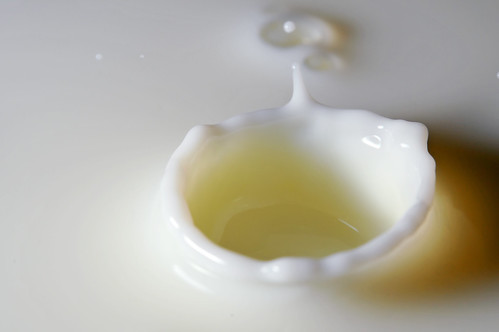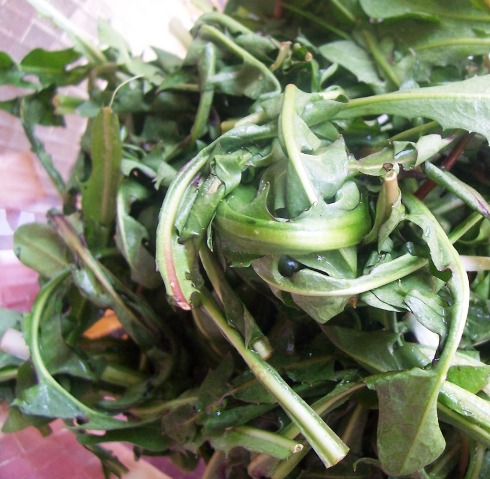The Importance of Vitamin B12
Like I said last week I want to be careful about over emphasizing the buzz nutrients of the day. Much of the research on isolated vitamins and minerals shows us just how well the body responds to real, traditional foods. Vitamin B12 is yet another example.
Why Vitamin B12 Matters
Strangely enough when I was found deficient in vitamin D a year ago, and my husband just two weeks ago, we were also both below the normal range for B12. Surprising because we are not shy with the animal products in our home. But B12 is a bit tricky in that there are a lot of places where absorption can go wrong. So while we are eating plenty of B12 containing foods we may still be deficient:
…deficiencies in pepsin, hydrochloric acid, R-protein, pancreatic enzymes, intrinsic factor, calcium and cell receptors can all lead to B12 deficiency through blocked absorption.
I don’t want to bore you with article citations and research showing B12’s helpfulness in cancer, MS, heart disease, fertility and others (source). I do want to point out, however, that there has long been a connection between healthy animal products (the only source of B12) and robust health:
Dr Price traveled around the world in the 1920s and 1930s, investigating native diets. Without exception, he found a strong correlation between diets rich in animal fats, robust health and athletic ability. Special foods for Swiss athletes, for example, included bowls of fresh, raw cream. In Africa, Dr Price discovered that groups whose diets were rich in fatty meats and fish, and organ meats like liver, consistently carried off the prizes in athletic contests, and that meat-eating tribes always dominated tribes whose diets were largely vegetarian. (source)
Food Sources of Vitamin B12
Because we want to get our nutrients primarily from real foods it is necessary to eat animal products in order to obtain vitamin B12.
B12 is found almost exclusively in animal foods such as liver, kidney, meat, fish, shellfish, milk products and eggs.
There are different levels of B12 in different animal products, but in general you’ll want to consume grass-fed meats, raw milk or milk products, eggs and organ meats.
Supplementation
Rather than supplement like crazy and put vitamins, minerals, probiotics and omegas into our white bread and flavored yogurt, it just makes more sense that we should be getting our nutrients from food.
B12 is no exception and one exception at the same time. Sally Fallon says:
However, when it comes to B12 itself, supplementation with isolated B12 is often necessary and appropriate.
What you don’t want is a multivitamin that is causing more harm than good…
The late Victor Herbert, a noted B12 researcher, maintains that many multivitamin products contain spurious and even dangerous analogs of B12 possibly formed when crystalline B12 interacts with other nutrients in multivitamin products, such as vitamin C, iron and copper.
Fortunately there are good vitamin B12 supplements out there that can help you overcome a deficiency.
…supplementation with large doses of crystalline B12 or with foods extremely rich in B12 can successfully treat deficiencies caused by compromised protein digestion or lack of R-protein, intrinsic factor or pancreatic enzymes.
As with vitamin D and other buzz nutrients of the day, the need for B12 points us back to real foods, those that have been eaten by the many generations before us. Always take care to know where your animal foods come from, that they are pastured and raised humanely.
You can find sources of pastured, humanely raised meats here.
Recommended reading: Vitamin B12: vital nutrient.
What about you… what do you think of B12, the need for animal products and health?
This post is a contribution to Fight Back Friday.



Interesting post!
My mom has MS and has forgone the “traditional” treatment (prescribed shots) in favor of a series of Vitamin B shots that she gives herself every two weeks or so (they are also “prescribed” and put together in the pharmacy, but it is considered an alternative treatment and she had a hard time finding a doctor who’d give them to her). She’s done remarkably well on this treatment.
Best,
Sarah
I’m so lucky to have a farm near me that I get raw pastured milk from, which we use to make our own butter & cheese. They also provide us with pastured beef, chicken and eggs. For most of our red meat however, we eat venison thanks to having a father who loves to provide every family member with lots of fresh venison each fall.
We supplement our diet with vit b12, vit d and omega something or other fish oil. We don’t do multivitamins.
This article goes hand in hand with one that I just posted about the benefits of Raw Milk. Glad I found your blog–can’t wait to read some of your other posts.
My husband and I take a whole-food supplement that contains “super-fruits” like acai berry and mangosteen and is full of Vitamin B-12. I can feel myself concentrate and feel energized partly due to the B-12 content. Check it out http://www.chewsreview.com
I recently discovered my B12 level was what I would consider very low but marginally above what the lab/dr said was normal range. My dr wasn’t very interested in prescribing B12 shots or advising me on how to supplement other than taking a multi-vitamin. I’ve done alot of research on B12 deficieny, but have been unable to figure out what supplement to take. I eat a very healthy diet with grassfed meats, eggs, etc… I’m trying to increase the amount of fermented foods I eat to hopefully improve my absorption but in the meantime can you or anyone else recommend a good B12 supplement?
any good sources for vitamin b12? i mean becasue vitamion b6 which can help reduce the chances of carpal tunnel is something ive recently jumped on to and now thiers b12 which i heared is esstenail in pregnancy
vitamins – B12 is found heavily in animal liver (pastured of course). It is also available in just about all animal products – meat, eggs, raw dairy. Just be sure the animals are pastured.